President James Earl “Jimmy” Carter Jr. died on Sunday, December 29, 2024 at his dwelling in Plains, Georgia, at 100 years outdated. Carter will probably be remembered as a consummate humanitarian and Nobel Prize profitable statesman who spent his retirement years constructing homes with Habitat for Humanity and all however eradicating a really horrible parasite, the guinea worm, from the planet.
He may also be relatively unfairly remembered as a weak, ineffectual chief, relegated to a single four-year stint within the White Home; a rarity amongst trendy presidents. It’s a fame pushed by the Greed-is-Good Reaganites who instantly adopted Carter’s single-term presidency. However wanting again, it’s clear that Carter’s presidency included loads of far-reaching adjustments that would have drastically altered the course of America — particularly, our dependency on automobiles and overseas oil, and our price of poisonous air pollution output — if solely we had caught along with his plans.
It’s far past anybody’s capability to sum up such a person, even with a number of thousand phrases to work with, however right here’s how Carter biographer Jonathan Alter describes his topic:
With expertise starting from agronomist, land-use planner, nuclear engineer and sonar technologist to poet, painter, Sunday College trainer and grasp woodworker, Carter was the primary president since Thomas Jefferson who may rightly be thought-about a Renaissance Man.
He was additionally the primary since Jefferson beneath whom no blood was shed in battle. And his document of honesty and decency — as soon as seen as minimal {qualifications} — have loomed bigger with time. At a farewell dinner simply earlier than leaving workplace, his vice-president, Walter F. Mondale, whose job Carter turned from punchline right into a place of actual duty, toasted the Carter Administration: “We instructed the reality. We obeyed the regulation. We saved the peace.” Carter later added a fourth main accomplishment: “And we championed human rights.”
Carter served as president from 1977 to 1981, throughout a time when the U.S. alone consumed one-third of your complete planet’s vitality manufacturing — a lot of that going in direction of fueling the massive, criminally inefficient automobiles of the period. Carter created ground-breaking insurance policies that tried to reverse this development, a lot of which Regan dismantled faster than a photo voltaic panel on the White Home roof. Even so, there have been some deeply-felt lasting results of his administration. Carter wrote in his autobiography:
The Congressional Quarterly reported that since 1953 Lyndon Johnson, John Kennedy and I ranked in that order in acquiring approval of laws proposed to Congress. The Miller Middle reported that my document exceeded Kennedy’s.
Certainly, he received his legislative manner in Congress 76.6 p.c of the time, based on Politifact. He left a deep mark on this nation, particularly with regards to the surroundings and the automotive trade. Carter was the primary president to bail out an American automaker, Chrysler, with a $1.5-billion Treasury mortgage. He was the primary to aim to get oil firms to pay their justifiable share of taxes throughout instances of document earnings (and document gas-pump costs) and the primary chief on the planet to handle world warming, and humanity’s position in it, as a actuality.
Carter checked out our wasteful, energy-hungry American tradition and struck a solemn — sometimes scolding — chord, imploring us to construct towards a brighter future. However such a imaginative and prescient shouldn’t be attractive, and it’s not enjoyable. It’s actually not a part of what we consider because the go-go Nineteen Eighties tradition. As an alternative of significantly investing in improvements that would scale back our dependence on carbon-emitting oil from hostile nations, America selected to proceed in a completely completely different path, made clear when the citizens selected Ronald Regan by a landslide within the 1980 presidential election.
“Carter additionally envisioned electrical automobiles by the mid-Nineteen Eighties, and would have used his energy to push automakers in that path, as he did on CAFE requirements,” Carter biographer Jonathan Alter instructed Jalopnik. Alter believes {that a} second Carter time period would have been significantly better in a number of methods. “Beginning with extra compassion domestically and fewer saber-rattling overseas, the place he would have doubtless accomplished the unfinished enterprise of Camp David, particularly some complete Mideast peace deal that included an eventual Palestinian state. Carter instructed me this was his largest remorse about dropping.”
Carter received the Nobel Peace Value in 2002, the committee citing his groundbreaking work in direction of peace all through his profession, each as president and as a personal civilian. The Camp David Accords ended 30 years of hostility between Egypt and Israel and stay the longest-lasting peace settlement since World Struggle II.
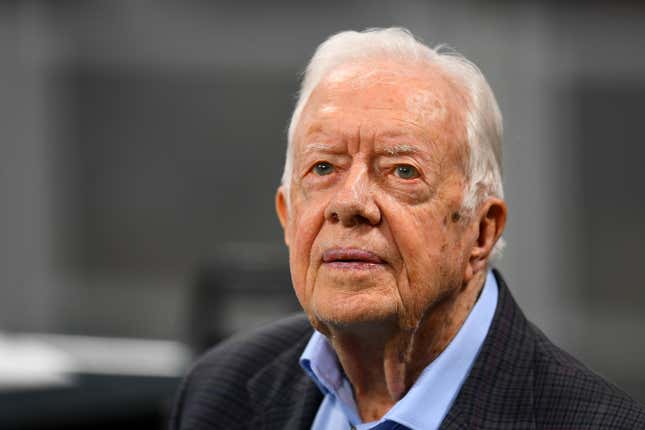
That’s to not say Carter was with out fault. As president, Carter saved Chrysler (and the automaker paid off its debt to the American folks seven years early), however the Carter administration additionally helped set up an emboldened company America the place employees nonetheless often bear the burden of highly-paid CEOs’ errors. He created a brand new tax that might straight outcome within the rise of the SUV, inspiring automakers to revamp their ’70s gas-guzzler shortsightedness for the twenty first century. And he led a White Home that appeared chaotic and directionless when America yearned for sturdy management.
Let’s check out the place this influential president went proper — and the place he went improper — in his dealings with the American automotive trade.
Taking up Gasoline Financial system and Huge Oil
By 1977, the idea of the trendy suburb was solely about 25 years outdated, however had overtaken the American lifestyle. By the Nineteen Seventies, the variety of automobiles on American roads had quadrupled in twenty years, to 118 million autos, and the variety of miles traveled by automobile had doubled. This was the Malaise Period of automobiles — a time of inefficient, poorly constructed, uninspired land yachts. The rise of in-car air con shaved much more miles off the U.S. financial system common, costing new automobile house owners about two and a half miles per gallon.
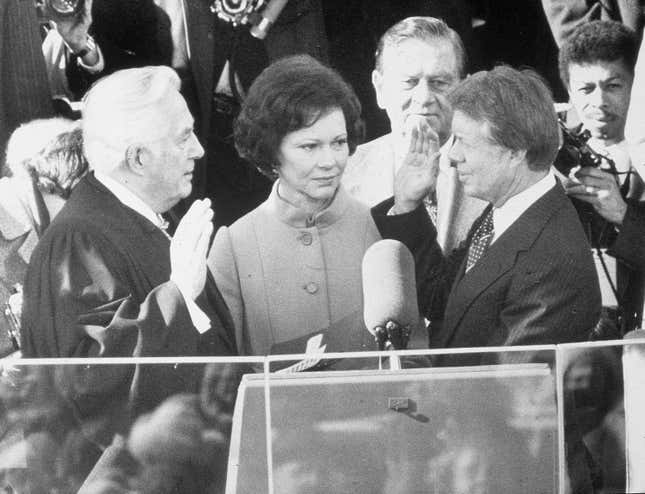
Carter addressed this waste in his first tackle as president:
We now have realized that “extra” shouldn’t be essentially “higher,” that even our nice Nation has its acknowledged limits, and that we are able to neither reply all questions nor resolve all issues. We can’t afford to do all the things, nor can we afford to lack boldness as we meet the longer term. So, collectively, in a spirit of particular person sacrifice for the frequent good, we should merely do our greatest.
The nation was nonetheless reeling from the 1973 Fuel Disaster, precipitated after the Group of Petroleum Exporting International locations positioned an embargo on U.S. oil gross sales in response to the U.S. re-supplying Israel in the course of the Yom Kippur Struggle. This precipitated a spike in gasoline costs and shortages in gas throughout the nation. OPEC ended its embargo in Might of 1974, however gas costs remained excessive whereas oil firms profited immensely.
To stop one other painful vitality disaster, Carter’s predecessor, Gerald Ford, had signed into regulation the primary Company Common Gasoline Financial system commonplace. This coverage would ultimately be expanded by the vitality invoice Carter promised in his inaugural tackle. Handed in 1978 because the Nationwide Power Act, the gathering of eight payments created the Division of Power, pushed renewable vitality targets, raised fleet common MPG necessities, decreased oil imports by supporting the U.S. oil trade, and imposed a gasoline guzzler tax which might enhance as CAFE requirements tightened.
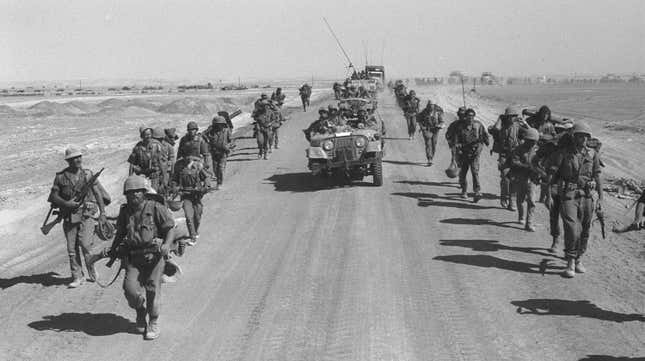
Carter referred to as the earlier administration’s vitality disaster the “…ethical equal of battle,” and he deliberate to come back out with each weapons blazing. His new Division of Power can be put to the check only a yr after its creation when, in 1979, Carter confronted the ethical battle of his personal vitality disaster.
The Iranian Revolution and the following hostage disaster despatched oil costs hovering from $13 per barrel in mid-1979 to $34 per barrel by mid-1980 — regardless of the loss in oil provide being estimated at solely 4 to 5 p.c. Lengthy traces at gas pumps have been as soon as once more angering People. However folksy Carter was well-known for dealing with ethical struggles. The president sequestered himself at Camp David for 10 days to think about the vitality issues dealing with America. He met with leaders in enterprise, science and religion, and spent hours alone finding out and writing.
After this era of reflection, Carter believed he had recognized the issue. In what would later change into often called Carter’s Malaise Speech, he lower to the center of U.S. consumerist tradition:
The erosion of our confidence sooner or later is threatening to destroy the social and the political cloth of America. . . .
In a nation that was happy with laborious work, sturdy households, close-knit communities, and our religion in God, too many people now are likely to worship self-indulgence and consumption. Human identification is not outlined by what one does, however by what one owns. However we’ve found that proudly owning issues and consuming issues doesn’t fulfill our eager for which means. We’ve realized that piling up materials items can’t fill the vacancy of lives which don’t have any confidence or function.
The signs of this disaster of the American spirit are throughout us. For the primary time within the historical past of our nation a majority of our folks consider that the subsequent 5 years will probably be worse than the previous 5 years. Two-thirds of our folks don’t even vote. The productiveness of American employees is definitely dropping, and the willingness of People to avoid wasting for the longer term has fallen under that of all different folks within the Western world.
Whereas actually not improper, saying as a lot is form of a bummer. Amazingly, Carter’s extremely low approval numbers acquired an 11-point bump after the speech, which was squandered a number of days later when Carter fired 5 cupboard members. His presidency appeared scattered and chaotic heading into the 1980 presidential election.
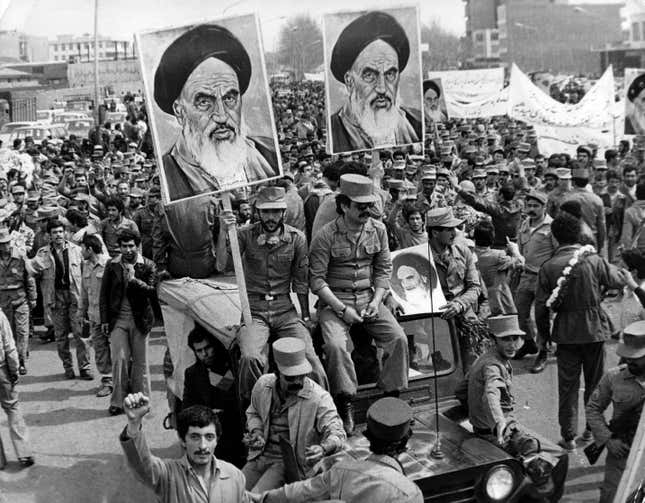
With the intention to convey down gasoline costs, Carter would start to decontrol home gas markets whilst he imposed a big tax on oil firm windfalls in the course of the nationwide gasoline shortages and value hikes. His insurance policies would initially result in a rise in home oil manufacturing of almost 1 million barrels a day between 1980 and 1985, based on the Miller Middle. Nevertheless, the value of oil plummeted within the mid ’80s, and the tax turned a major hindrance to home oil manufacturing, whereas not raking in all that a lot dough for the federal authorities. It was repealed in 1988; politicians have been twitchy over the concept of taxing large oil firm earnings ever since. President Joe Biden lately floated the identical thought, which was virtually universally panned as being doomed to repeat Carter’s failure.
Carter’s regulation of the auto trade wasn’t good, both. Throughout his time in workplace, Carter expanded a tax on Japanese light-trucks so as to prop up home gross sales. Reagan would construct on this coverage in 1981, urgent Japanese automakers into “voluntary” export restrictions.
Additional, mild vehicles have been exempt from Carter’s strict new MPG requirements, and proceed to be exempt to today. These little favors for the automakers would lead on to the rise of lethal, harmful and wasteful SUVs and vehicles on America’s roads, setting us up for one more vitality disaster in 2022, when gasoline costs and inflation as soon as once more reared their ugly heads.
Carter instructed the Harvard Enterprise Evaluation he was proactive with automakers about constructing extra fuel-efficient automobiles even earlier than his personal oil disaster. The heads of the Huge Three have been hesitant to get on board, nonetheless:
[…] I referred to as in to my cupboard room the chief government officers—the chairmen of the board and the presidents of each vehicle producer within the nation—together with the autoworkers’ union representatives. I instructed them we have been going to go some very strict air air pollution and vitality conservation legal guidelines. My hope was that they’d take the initiative proper then and commit themselves to producing energy-efficient cars that might adjust to these strict requirements. Their unanimous response was that it merely was not potential. I instructed them that automakers in Sweden and in Japan have been doing it, so it was potential. However they insisted that they simply couldn’t make a revenue on it as a result of their revenue got here from the bigger cars. In order that they refused to switch their designs.
Finally we handed a regulation that required them, incrementally and yearly, to enhance their cars’ effectivity and to adjust to environmental requirements. Within the meantime, American producers misplaced a number of the home market. That was a case of the auto trade being unwilling to look to the longer term. They may not see the long-run benefit, despite the fact that it would show to be expensive within the close-in years.
That delay would price Chrysler dearly.
The 1979 Chrysler Bailout
That lack of long-term foresight Carter spoke of in his Malaise speech would ship Chrysler spiraling in direction of one thing unimaginable within the post-war United States: The chapter of a serious American vehicle producer. And but, in 1979 Chrysler confronted half a billion {dollars} in losses.
At a time of rising gasoline costs and the emergence of stringent federal gas financial system requirements, the American automaker was nonetheless churning out these poorly-built street yachts. No automaker constructed them fairly as huge (or as wasteful) because the Chrysler company. On the time, Chrysler was the third-largest automaker within the nation, and the Tenth-largest industrial producer. By the point Carter took workplace, America had waded by way of 5 years of vitality ups and downs, however Chrysler hadn’t modified its autos all that a lot. When the second gasoline disaster hit, together with the brand new rules put in place by Carter’s vitality coverage, Chrysler fumbled.
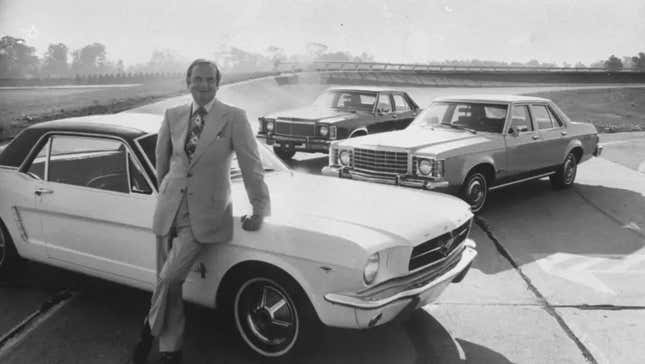
The corporate had lately scooped up superstar CEO Lee Iaoccoa, contemporary off eight years of getting cash hand over fist for Henry Ford II. Iacoccoa was the autumn man for the Ford Pinto catastrophe, however had made few pals along with his need to push the corporate in direction of extra fuel-efficient autos. As an indication of the intense state of affairs Chrysler was in, Iacoccoa took a wage of solely $1 in his first yr as CEO. Iacocca then tried to maneuver Chrysler in direction of smaller autos, however shortly realized his new employer wouldn’t be capable of climate this monetary storm alone.
Iacocca reached out to the feds for assist. He persuaded lawmakers that Chrysler was too huge to fail. Carter’s Treasury Division was on board, however so as to get sufficient assist in Congress for a mortgage, the Carter administration would ask the corporate, and the UAW, to make deep concessions. Treasury Secretary G. William Miller proposed a $1.5 billion mortgage, then the Carter Administration’s Council on Wage and Value Stability testified earlier than the Senate Banking Committee that such a mortgage can be consumed in three years flat, because of the automaker’s obligations to the UAW.
After a summer season of dangerous press and congressional cajoling, the UAW ultimately agreed to $525 million in concessions in late October 1979, together with a three-year wage freeze. Simply earlier than Christmas, Chrysler received its $1.5 billion mortgage within the type of the Chrysler Company Mortgage Assure Act.
The act did extra than simply bail out Chrysler. Whereas Chrysler can be topic to extra authorities oversight whereas paying off the debt — together with $2 billion in cost-cutting measures and a three-year plan accredited by Congress to get the corporate again on monitor — the particular act additionally relaxed the brand-new gasoline mileage necessities up to date by the 1978 Nationwide Power Act. That alone gave Chrysler a much-needed increase, which Iacocca used to springboard the company-saving Ok-cars and, ultimately, the minivan, which got here to outline the model within the Nineteen Eighties and Nineties. This bailout can be used as a blueprint by the Obama administration in 2008 when Basic Motors and Chrysler discovered themselves in the identical state of affairs Chrysler had confronted in 1979.
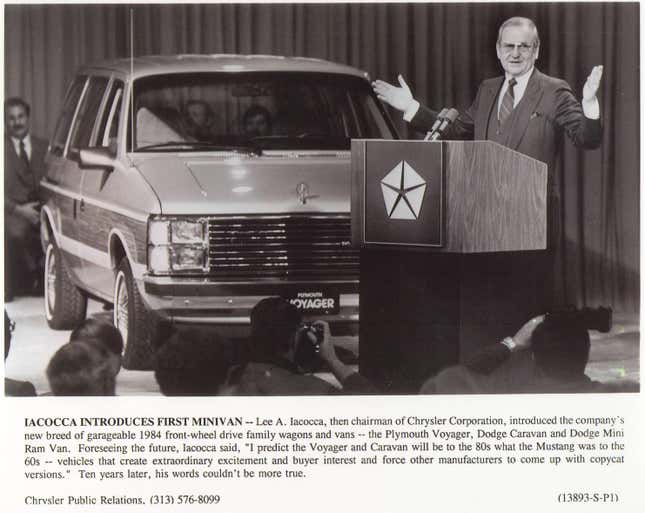
Whereas Chrysler workers weren’t those who made the dangerous enterprise selections within the ’70s, they’d bear an amazing burden within the plan to proper the corporate’s course. As they accepted main concessions, union members have been painted by the media as egocentric and lazy, keen to kill Chrysler to get their golden retirement funds. Even with steep concessions and wage freezes in the course of historic inflation, Chrysler laid off 57,000 of its 134,000-strong manufacturing workforce, the Washington Put up reported in a retrospective on the bailout revealed in 1984. All instructed, the auto trade as a complete would lay off 239,000 employees in a single month in 1980.
Nonetheless, Carter biographer Jonathan Alter says saving Chrysler was price it. “It was a binary choice: Save Chrysler and hundreds of jobs or not, and he clearly made the proper name for employees, for whom he had rather more respect than did Reagan,” Alter instructed Jalopnik
The harm to unions would final for much longer than Chrysler’s debt. The automaker managed to repay its mortgage seven years early — principally to get out from beneath federal oversight. The U.S. made $300 million on its funding within the firm. Whereas Chrysler would thrive within the ’80s and ’90s because of Iacocca’s easy, fuel-efficient Ok-cars and the favored minivan, union membership in America dropped precipitously as Proper-to-Work legal guidelines swept the nation. And as union memberships stagnate, so do wages.
Carter Was Proper
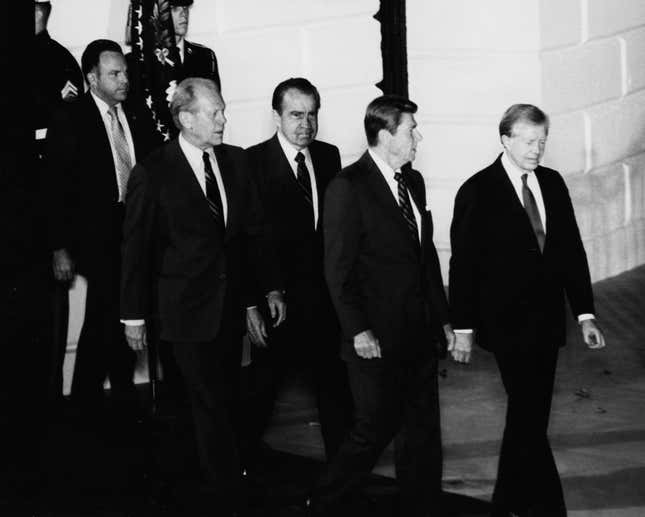
The vitality disaster was a key situation to voters who tossed Carter out in favor of Ronald Reagan in a legendary landslide. Having fellow democrat Ted Kennedy problem the sitting president for his occasion’s nomination was only one extra nail within the coffin of Carter’s re-election marketing campaign. His shaky administration didn’t look any extra stable when the president misplaced consciousness throughout a 10K run.
Reagan didn’t chide the American public for his or her gas-guzzling automobiles. He didn’t ask People to spend much less, or look deep inside themselves and query consumerist tradition — Reagan promised wealth, abundance and a revitalization of the American dream (for some, anyway). As soon as he took workplace, Reagan stripped the Carter-installed photo voltaic panels off the roof of the White Home and tossed them in a basement. The dismantling served as an emblem of America rejecting Carter’s outdated vitality insurance policies wholesale. When the photo voltaic panels have been present in 2010, they nonetheless labored.
Carter’s considerations concerning the U.S. didn’t disappear — we simply put them on the again burner for a number of a long time. Now we’re dealing with challenges just like what Carter tried to handle along with his time in workplace: local weather change; oil firms profiteering on the again of sky-high gas costs; the runaway reputation of big, inefficient autos; and detrimental consumerism on a scale acquainted to anybody who lived by way of the Nineteen Seventies.
So what if Reagan had misplaced the 1980 election? In accordance with a New York Occasions op-ed, we may be dwelling in a really completely different world:
In accordance with a current report by Amory Lovins of the Rocky Mountain Institute, if america had continued to preserve oil on the price it did within the interval from 1976 to 1985, it could not have wanted Persian Gulf oil after 1985. Had we continued this sensible course, we’d not have needed to struggle the Persian Gulf battle, and we’d have insulated ourselves from value shocks within the worldwide oil market.
Simply earlier than Carter left workplace in 1981, a member of his White Home Council on Environmental High quality, Gus Speth, authored a presidential report as a part of International 2000, a course of recommending motion on world warming. It was the primary such coverage pronouncement anyplace on the planet.
“Speth’s suggestions for tackling local weather change in 1981 can be virtually an identical to the Paris Local weather Accords some 34 years later. Such a report would have change into a part of Carter’s legislative agenda in 1980,” Alter instructed Jalopnik.
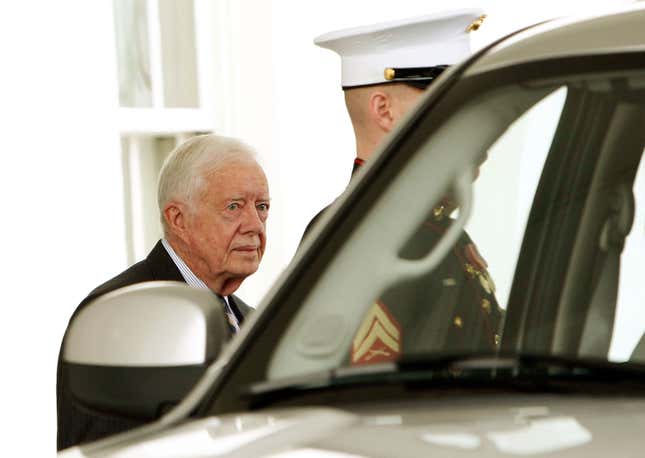
With Jimmy Carter’s demise, America didn’t simply lose an exemplary humanitarian who doubled the dimensions of the Nationwide Parks system and signed 15 main items of environmental laws, together with the primary poisonous waste cleanup. We misplaced a reminder that our nation as soon as had a head-start on fixing among the best issues we face right now: environmental air pollution, runaway oil consumption, rampant consumerism, a psychological well being disaster, local weather change and Center East violence. Carter envisioned a special, extra accountable America, and he was rejected for it.
Carter’s most enduring legacy will probably be this: He tried to go away America somewhat higher than he discovered it. He tried to warn People concerning the challenges we’d face over the subsequent 5 a long time. Our personal legacy reveals we have been utterly unwilling to heed these warnings.

